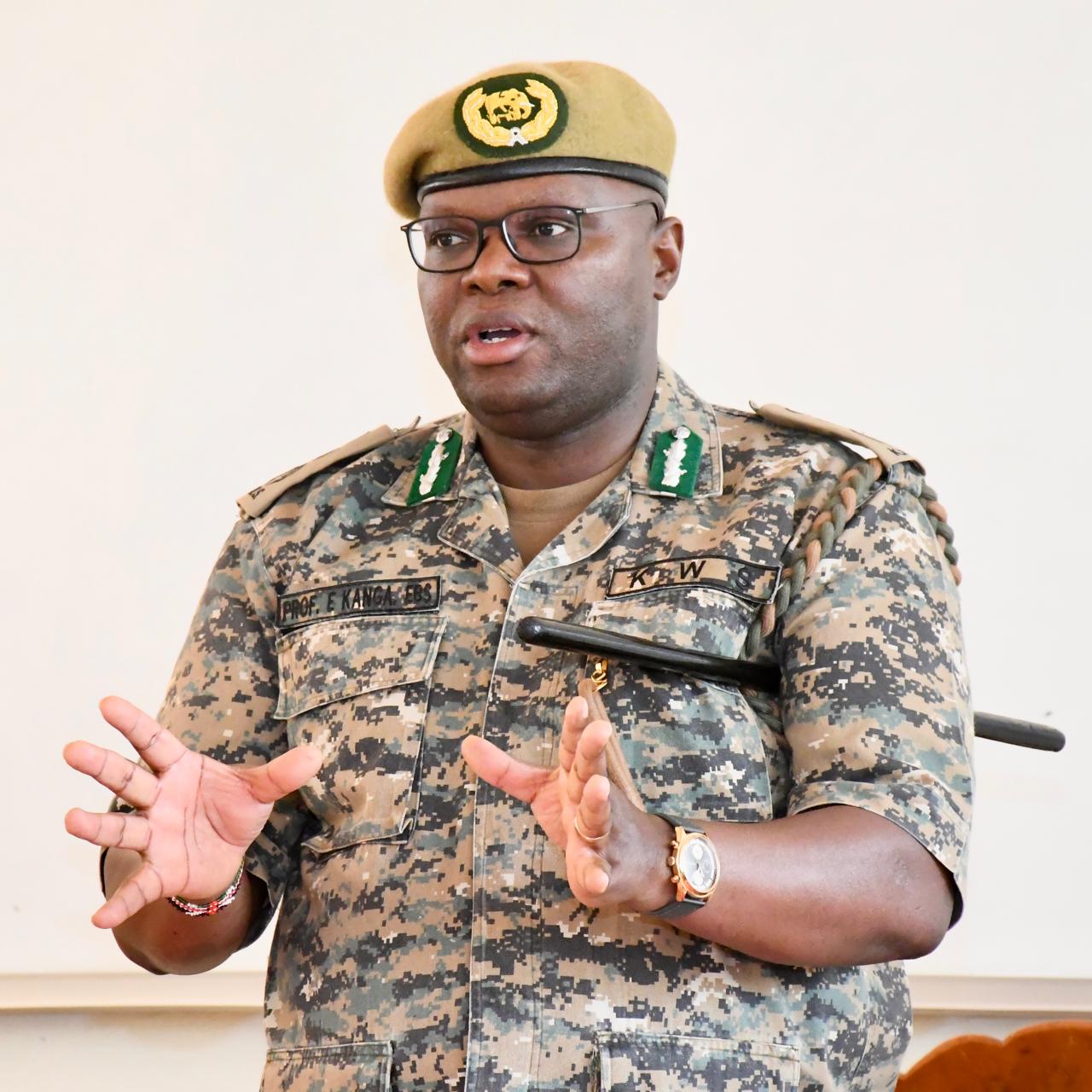News
LSK Accuses KWS Boss of Shielding Rangers in Abduction Case
The rangers, who were charged in March with conspiracy to abduct Odhiambo, remain on active duty, a revelation that has sparked public outrage and deepened the family’s anguish.

The Law Society of Kenya (LSK) has accused the Kenya Wildlife Service (KWS) of shielding six of its rangers implicated in the disappearance of Nakuru fisherman Brian Odhiambo, who has been missing since January 18.
The rangers, who were charged in March with conspiracy to abduct Odhiambo, remain on active duty, a revelation that has sparked public outrage and deepened the family’s anguish.
In a tense court session on Monday, lawyers representing Odhiambo’s family confronted Emmanuel Koech, the head of Lake Nakuru National Park, demanding to know why the rangers despite taking plea more than three months ago have not been interdicted.
Mr. Koech, who also serves as an assistant director at KWS, struggled to defend the agency’s decision, citing an incomplete internal disciplinary process as the reason for their continued service.
“When KWS officers take plea in court, they go through an orderly room process,” he said. “However, the six have not completed the process.”
But LSK lawyer Kipkoech Ngetich challenged Koech’s explanation, accusing him of actively protecting the accused.
“You are confirming that the officers are still discharging their duties and are fully represented by KWS lawyers. Doesn’t this clearly show that you are protecting them?” he asked pointedly in court.
The six officers—Senior Sergeant Francis Wachira, Alexander Lorogoi, Isaac Ochieng, Michael Wabukala, Evans Kimaiyo, and Abdulrahaman Suli were arraigned on March 6 over the alleged abduction, which reportedly took place in Nakuru’s Kivumbini estate. Odhiambo was last seen being arrested during a KWS operation against illegal fishing, but has not been seen since.
Inconsistencies in official accounts are compounding the mystery.
Koech admitted that KWS had no records of arrests made on the day Odhiambo vanished, contradicting earlier testimony from the Bondeni Police Station commander, who confirmed nine arrests on that date.
“There are records at Bondeni police station, but no records at KWS. Is that what you are saying?” Ngetich pressed.
Another lawyer, Abuya Mogendi, argued that KWS was possibly operating outside the oversight of the Independent Policing Oversight Authority (IPOA), and accused Koech of indifference toward uncovering the truth.
Koech’s vague explanations only deepened suspicion.
He claimed that KWS rangers sometimes pursue suspects who escape custody, and such incidents may go unrecorded.
But the claim offered little solace to Odhiambo’s grieving family, who sat in court clutching his photo—still searching for answers, six months after his disappearance.
As the case unfolds, the spotlight remains firmly on KWS leadership and its opaque disciplinary processes. For now, Odhiambo’s fate remains unknown, and the institution tasked with protecting wildlife is facing growing scrutiny over how it treats human life.
Kenya Insights allows guest blogging, if you want to be published on Kenya’s most authoritative and accurate blog, have an expose, news TIPS, story angles, human interest stories, drop us an email on [email protected] or via Telegram
-

 Grapevine6 days ago
Grapevine6 days agoAlleged Male Lover Claims His Life Is in Danger, Leaks Screenshots and Private Videos Linking SportPesa CEO Ronald Karauri
-

 Lifestyle1 week ago
Lifestyle1 week agoThe General’s Fall: From Barracks To Bankruptcy As Illness Ravages Karangi’s Memory And Empire
-

 Grapevine2 days ago
Grapevine2 days agoRussian Man’s Secret Sex Recordings Ignite Fury as Questions Mount Over Consent and Easy Pick-Ups in Nairobi
-

 Investigations2 weeks ago
Investigations2 weeks agoEpstein Files: Sultan bin Sulayem Bragged on His Closeness to President Uhuru Then His Firm DP World Controversially Won Port Construction in Kenya, Tanzania
-

 News2 weeks ago
News2 weeks agoAUDIT EXPOSES INEQUALITY IN STAREHE SCHOOLS: PARENTS BLED DRY AS FEES HIT Sh300,000 AGAINST Sh67,244 CAP
-

 Business2 weeks ago
Business2 weeks agoKRA Can Now Tax Unexplained Bank Deposits
-

 Investigations1 week ago
Investigations1 week agoEpstein’s Girlfriend Ghislaine Maxwell Frequently Visited Kenya As Files Reveal Local Secret Links With The Underage Sex Trafficking Ring
-

 News1 week ago
News1 week agoState Agency Exposes Five Top Names Linked To Poor Building Approvals In Nairobi, Recommends Dismissal After City Hall Probe














